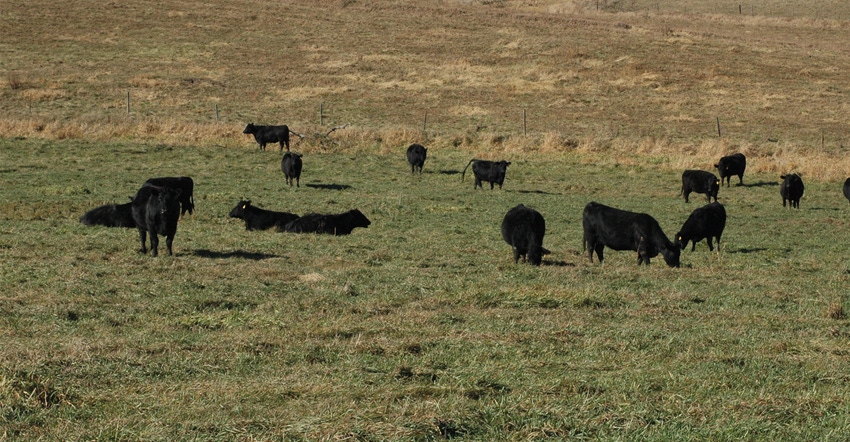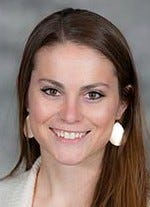April 5, 2019

To put it simply, Beth Reynolds sees herself as a resource for cattle producers. As the new Iowa State University Extension program specialist with the Iowa Beef Center, she says her goal is to provide relevant materials and keep resources readily available.
“The diversity and unique qualities of cattle operations throughout Iowa was a big draw for me to pursue a career here,” she says. “I know not everything available from IBC applies to every cattle producer’s operation, and I want to stay on top of topics producers care about and need information on.”
For example, Reynolds says her primary interest is in the cow-calf sector and forage use. However, as a Colorado native who grew up on a diversified family farm that uses cover crops and corn residue for both their commercial cow and their registered Charolais herd, she knows she’ll need to shift her focus somewhat.
Iowa needs to focus more on forages
“We typically graze native range during the growing season, turn the cows out onto cornstalks immediately after harvest, calve on stalks, move pairs onto rye after green up in the spring, and then move the cows back to native range during planting season,” she explains. “I’ve always enjoyed range management techniques, but in Iowa, I need to shift to pasture management.
TALKING SHOP: Beth Re ynolds says it's important for producers to learn how to communicate with consumers.
ynolds says it's important for producers to learn how to communicate with consumers.

“I anticipate a large part of my work here will be to focus on pasture and annual forages as this is a big topic in Iowa, and there is a need at the beef center for someone to focus on forages.”
Reynolds earned a bachelor’s degree in animal science, with a focus on production, from the University of Wyoming. She received her master’s in animal science, with a focus on ruminant nutrition, from the University of Nebraska. Her thesis work centered on evaluating the risk of nitrate toxicity when grazing annual forages and determining how that risk might differ from feeding hayed annual forages.
She also was involved with a research project that evaluated how the nutritive quality of oats, turnips and radishes changes when those crops are grazed from late October to January in southern Nebraska.
Information producers need
It’s important for producers to understand how to communicate with consumers about management decisions while keeping science at the forefront of the conversations, Reynolds says.
“It’s challenging to discuss practices that aren’t well understood by consumers, yet still maintain consumer confidence in those discussions regardless of emotion,” she says. “For example, yes, ruminants produce methane. As producers, we shouldn’t deny that, but cows also convert otherwise non-useful products into a high-quality protein and, when managed appropriately, can increase land productivity and health.”
Reynolds will be at meetings, field days and research projects throughout the year. She looks forward to working with her IBC colleagues to share information and opportunities for education with producers and others in the beef industry.
“I’m a firm believer in data-driven conclusions and recommendations, and hope the information I provide remains relevant to the Iowa and national beef industry,” she says. “Our work is driven by the producers, and we need feedback to stay relevant for all operations, however large, small or unique they are.”
Source: ISU, which is responsible for the information provided and is wholly owned by the source. Informa Business Media and its subsidiaries aren’t responsible for any of the content contained in this information asset.
You May Also Like




